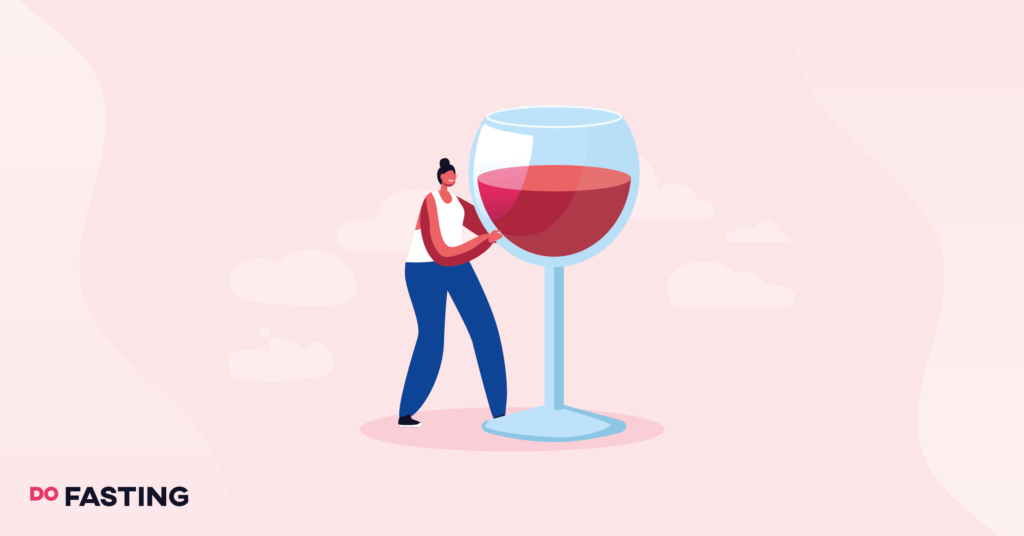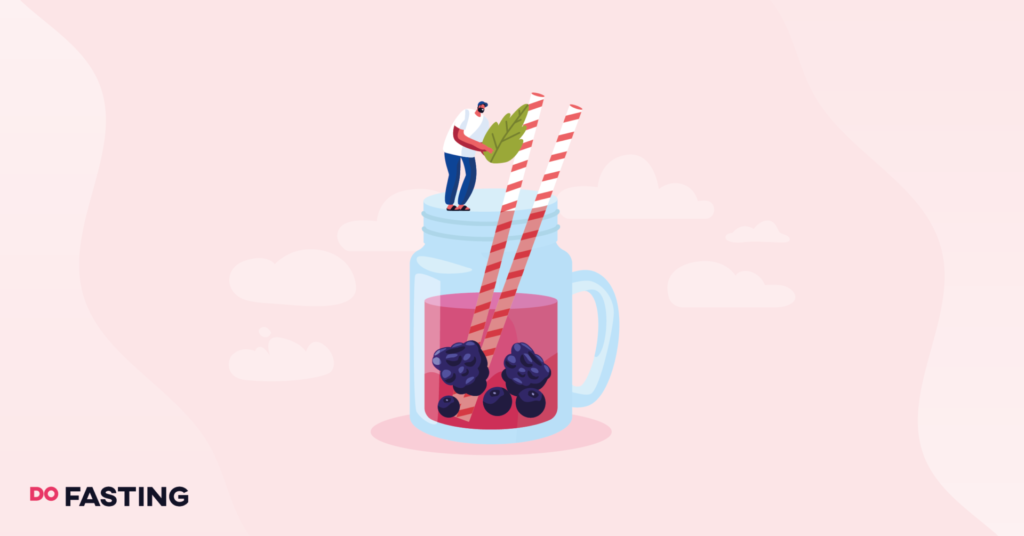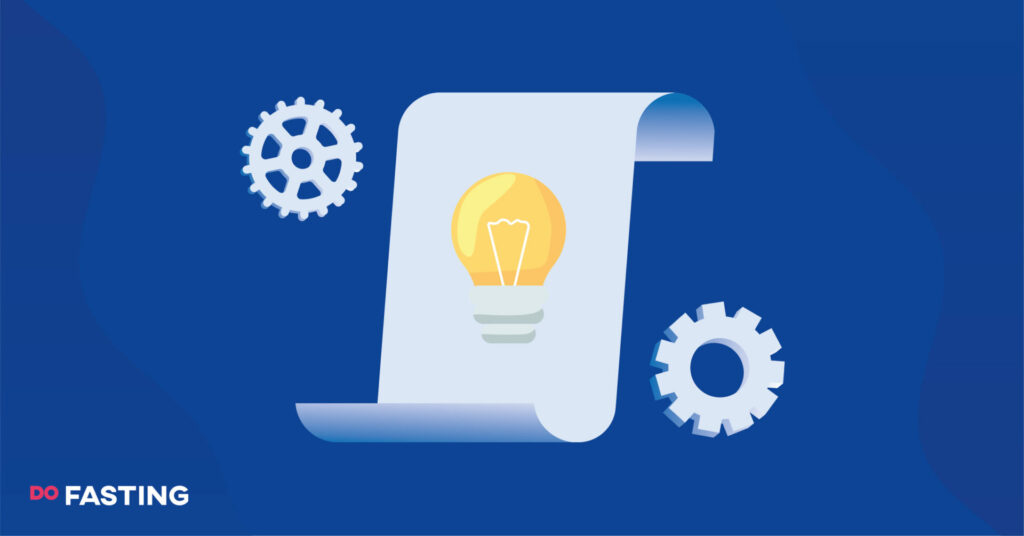Contents
Can You Have Alcohol During Fasting?
No, you cannot have alcohol during the fasting window. This is because alcoholic beverages contain calories that will not only break your fast, but also hinder the fat-burning process. In fact, it’s advisable to limit alcohol intake even outside the fasting period.
For those who enjoy an occasional drink in the evening, consuming up to three beverages per week is considered safe. Research indicates that individuals who maintain this level of consumption experience a lower risk of developing cancer and premature death.
Moderate alcohol consumption within the meal window is acceptable; however, heavy drinking is discouraged. To remain within safe limits, women should consume no more than one drink per day, while men should limit themselves to two drinks or fewer.
Moderate alcohol consumption during the meal window is acceptable. Heavy drinking, on the other hand, is not recommended. To stay within the safe range, women should have 1 drink or less a day and men should have 2 drinks or less.
Take a
1-minute quiz
and discover how much weight you can lose with DoFasting!

If You Choose to Drink, Timing Is Key
Drinking alcohol at appropriate times can help prevent disruptions to your intermittent fasting results.
It’s essential to consume alcohol during mealtimes only, and to do it in moderation, as food can help absorb the alcohol and minimize its impact on weight loss. Consuming alcohol on an empty stomach may cause intestinal discomfort and indigestion.
Keep in mind that alcohol will break your fast, so it must be avoided entirely during fasting periods. Consuming alcoholic beverages while fasting can cause blood sugar levels to rise and potentially lead to weight gain due to a slowed metabolism.
Downsides of Drinking Alcohol During Intermittent Fasting
While moderate drinking is generally considered safe, it doesn’t necessarily mean that alcohol consumption is advisable when trying to lose weight. It’s essential to recognize that most alcoholic beverages are high in calories and can impact how your body breaks down fat during fasting.
Here are 6 downsides to drinking alcohol while fasting.
May slow down fat burning
Alcohol can significantly impact your metabolism, causing it to slow down. When your metabolic rate decreases, your body ceases to burn extra calories efficiently throughout the day. As a result, the fat-burning process becomes less effective in reducing body weight.
Over time, this limitation can hinder your weight loss progress. If your goal is to eliminate stubborn belly fat, it’s best to avoid alcohol consumption during intermittent fasting. The high caloric content of alcoholic beverages is more likely to contribute to weight gain rather than promote fat loss.
May promote overall weight gain
High alcohol intake can contribute to weight gain in several ways.
Firstly, alcohol is calorie-dense, adding to your daily caloric intake. For example, a single glass of red wine contains 80-100 calories, which could be replaced with healthier alternatives such as water or herbal tea.
First of all, alcohol is calorie-dense, meaning it will contribute to how many calories you consume in one day. Just one glass of red wine contains 80-100 calories, which can easily be replaced with healthy beverages like water or herbal teas.
Additionally, alcohol consumption often leads to increased hunger. Experiencing hunger pangs while fasting can result in binge eating, which undermines your weight loss efforts. Consuming more processed or junk food during a weight loss diet increases the likelihood of stubborn fat gain.
May promote inflammation
An occasional drink is generally safe for the body; however, excessive drinking can lead to chronic inflammation. The toxins present in alcoholic beverages may disrupt the body’s natural defenses, reducing beneficial gut bacteria and impairing liver function.
Surprisingly, inflammation can also contribute to a sluggish metabolism. Therefore, to enhance long-term health, it’s essential to avoid excessive alcohol consumption. Consistently drinking wine and other alcoholic beverages will make it challenging to reduce body fat percentage.
May weaken your immune system
It’s well-known that alcohol consumption can suppress the immune system. When potentially harmful toxins enter the bloodstream, your body struggles to function optimally, leading to a gradual slowdown of natural immune responses.
It’s important to note that your immune system relies on energy from your metabolism. If the metabolic process slows down, your body’s overall functionality is affected. Chronic inflammation resulting from alcohol consumption contributes to weakened immunity, reduced weight loss, and a slower metabolic rate.
May interfere with cellular repair
Autophagy is a process that occurs during intermittent fasting, in which the body clears out abnormal cells while in a fasted state. However, even moderate alcohol consumption within the eating window could hinder autophagy and disrupt the repair of damaged cells.
It’s crucial to understand that high alcohol intake can inhibit autophagy in your liver and fat tissue. And, when the body cannot halt fat accumulation, weight loss becomes difficult to achieve. This is why it’s essential to avoid alcohol during the fasting window.
Disrupts overall progress during intermittent fasting
As you may already know, consuming sweet wines and spirits does not support your intermittent fasting progress. Alcohol intake can increase the risk of heart disease, insulin resistance, hormonal and chemical imbalances, and serious digestive issues. Your body requires full support while burning fat, and excessive alcohol consumption can hinder this process.
Too much alcohol can even disrupt ketosis—a metabolic state that occurs due to a lack of food, during which fat is burned for energy instead of glycogen stores and carbohydrates.
Alcohol consumption can also alter one’s mindset, potentially leading to poor food choices. To achieve your weight loss goals, it’s best to minimize alcohol consumption as much as possible.
Take a
1-minute quiz
and discover how much weight you can lose with DoFasting!

Are There Benefits to Drinking Alcohol During Intermittent Fasting?
Surprisingly, there may be some benefits of drinking alcohol in moderate amounts. This doesn’t mean alcohol consumption is completely safe, but the odd occasion will allow for it. Just remember to only consume these beverages during eating periods.
Below, you’ll find some potential benefits:
- Could help your heart: There is some research that shows how alcohol raises HDL cholesterol slightly. Red wine can be the cause of this benefit, as it contains antioxidants that stop cholesterol molecules from clogging artery walls.
- May prevent kidney stones: Alcohol is a diuretic, which encourages the kidneys to produce more urine and release excess fluids. The more you urinate, the more likely small kidney stones will get removed from your body.
- Encourages more confidence: People who drink moderate amounts will feel a rush of dopamine. This brain chemical is related to pleasure and happiness. A small amount of that can raise your confidence while moderately drinking.
- Might be good for the brain: Small amounts of alcohol increase gamma-aminobutyric acid (GABA) – a neurotransmitter that lowers anxiety and fear. Naturally, you’ll put less stress on your brain from negative emotions.
- Possible blood sugar balance: A low alcohol intake during the eating window can help the pancreas to regulate insulin. When those insulin levels are balanced, they won’t release as much sugar into your bloodstream.
Some of these benefits may sound great, but they don’t always occur. Chronic alcohol intake, like drinking more than one beverage a day, could have serious risks. If you want to consume alcohol, stick to having 3 a week and never go above that amount.
If You Do Drink—Here Are Your Best Options
For those who want to have a drink during the eating window, there are some options you can try. It’s better to find low-calorie alcoholic drinks to suit a weight loss diet. If possible, avoid going out drinking, as this can lead to excessive alcohol intake.
Here are some of the best options:
- Dry red or white wine
- Vodka and soda
- Tequila with lime
- Hard seltzer
- Light beer
- Plain gin and diet tonic
- Dry martini
These options contain fewer calories and sugars. For example, dry wine tends to have less sugar in each serving, making it suitable for lowering your calorie intake. Just remember to monitor how much you drink and always avoid mixed drinks.
Now, keep reading to find the worst options for a balanced diet:
- Cocktails and mixed drinks
- Rum and coke
- Straight shots
- Frozen beach drinks
- Craft beer
- Sweet wine
Drinking any of these during the eating window or fasting period could ruin your fat loss progress. The high number of calories, sugars, and saturated fats will block fat breakdown. Instead, avoid them and opt for low-calorie beverages in your diet.
Answer Your Fasting Questions With DoFasting
DoFasting is a brand that cares about your intermittent fasting journey.
The nutrition and wellness experts who develop the products answer the most common questions of all fasters on this blog. You can seach for more educational information about caloric intake and how alcohol affects intermittent fasting results.
They also have a DoFasting app that shows you the right tools for losing weight and improving long-term health. For example, the list of 5,000+ in-app recipes will help you plan out your favorite meals to reach your daily recommended calorie intake.
There are also workout routines for people who enjoy exercise. You can choose workouts ranging from 6 to 45 minutes, with a little extra motivation on the side. DoFasting is all about encouraging your results and offering more fasting tips.
Take a
1-minute quiz
and discover how much weight you can lose with DoFasting!

Intermittent Fasting and Alcohol: Final Thoughts
You should only have a moderate intake of alcohol during an eating window. Alcohol breaks a fast and will slow down the fat-burning process. Always think about your dietary regimen and how certain foods and drinks can affect weight loss.
Leave a Reply
See how DoFasting will improve your life
Find out what works for you with this 60-sec quiz approved by our experts and get your personal revolutionary fasting assistant.
Start the Quiz
This is an evidence-based article that includes scientific citations. DoFasting’s professional writers and editors prepared the content, which a team of medical experts verified to be accurate.
















2 Comments
I couldn’t refrain from commenting. Perfectly written!|
Thank you! ☺️